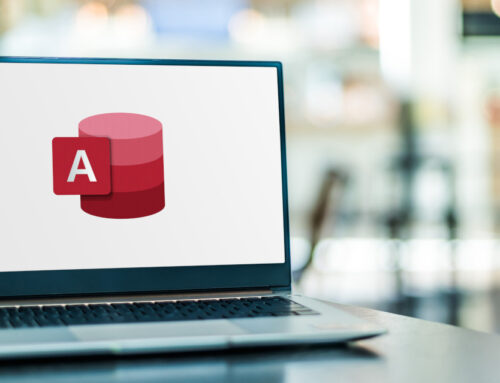Different methods of Networking MS Access Databases with Multiple Users, standalone, local LAN and Online.
Standalone MS Access without Networking and Multiple Users
The out-of-the-box Microsoft Access Database is ideal for a single user who can create simple applications using templates and safely store their data in 1 secure place. The database is capable of storing up to 2 gigabytes of data in a single file. Although this is a versatile solution to most business needs, it is not suitable for a multi-user environment because of the risk of file and database corruption An MS Access database should not be stored on a shared network drive or shared from a Windows workstation; doing so will reduce the performance and, most importantly, reliability. If a user must share the data, the DB needs to be closed, moved over to another location, and then opened by another user. Moving a database back and forth between PCs is cumbersome and allows duplicate and inconsistent data.
Split Database between Front-end and Back-end for reliable networking
Suppose a multi-user database is required for business processes. In that case, the simplest method of achieving this is to split the database into two files, a front-end (the application where data is input) and a back-end (where the data is stored). Each user is provided with a copy of the front-end database to be run on their individual PCs. These PC’s will each have access to all the data stored in the back-end database, which can reside on a shared network drive. The users will not be aware that the data resides elsewhere and will be seamless. The 2-gigabyte file size limit still applies to data in a single file, but one can still add additional back-end database files for increased storage.
You can find further details at the following Microsoft link.
Local LAN or Cloud Hosted SQL for solid MS Access sharing with Multiple Users
When your requirements grow to the point of 5-10 simultaneous users, a server-based Relational Database Management System such as MySQL or MS SQL is recommended for enhanced performance, reliability, security and scalability. Your data can be stored on a server connected to your local LAN or on a cloud server, allowing your remote users to access your company data from the internet.



